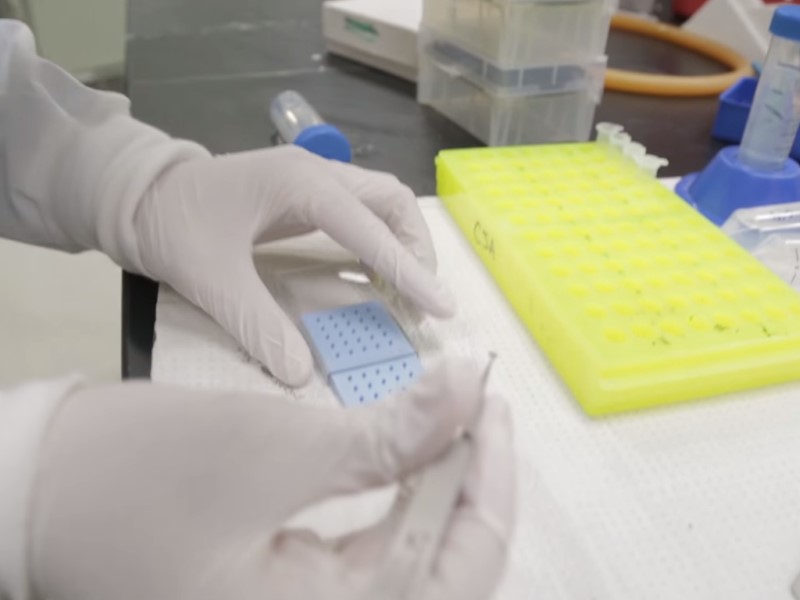- Home
- Science
- Science News
- Novel Nanoparticles Could Help Stop Tumour Growth: Study
Novel Nanoparticles Could Help Stop Tumour Growth: Study

The scientists used novel methods to create nanoparticles from calcium carbonate that were injected intravenously into a mouse model to treat solid tumours.
The compound changed the pH ( a scale that measures how acidic or basic a substance is ) of the tumour environment, from acidic to more alkaline, and kept the cancer from growing.
This work shows for the first time that it is possible to modulate pH in solid tumours using intentionally designed nanoparticles, the researchers said.
The results of the research were published online in the journal Nanoscale.
"Cancer kills because of metastasis," said Avik Som from Washington University in St. Louis.
Metastasis of cancer refers to spread of the disease from one organ to another not directly connected with it.
"The pH of a tumour has been heavily correlated with metastasis. For a cancer cell to get out of the extracellular matrix, or the cells around it, one of the methods it uses is a decreased pH," Som explained.
Commonly, nanoparticles have been made with gold and silver. However, neither are present in the human body, and there are concerns about their accumulating in the body.
"Calcium and carbonate are both found heavily in the body, and they are generally non-toxic," Som said.
"When calcium carbonate dissolves, the carbonate becomes carbon dioxide and is released through the lungs, and calcium is often incorporated into the bones," Som explained.
For the latest tech news and reviews, follow Gadgets 360 on X, Facebook, WhatsApp, Threads and Google News. For the latest videos on gadgets and tech, subscribe to our YouTube channel. If you want to know everything about top influencers, follow our in-house Who'sThat360 on Instagram and YouTube.
- Samsung Galaxy Unpacked 2025
- ChatGPT
- Redmi Note 14 Pro+
- iPhone 16
- Apple Vision Pro
- Oneplus 12
- OnePlus Nord CE 3 Lite 5G
- iPhone 13
- Xiaomi 14 Pro
- Oppo Find N3
- Tecno Spark Go (2023)
- Realme V30
- Best Phones Under 25000
- Samsung Galaxy S24 Series
- Cryptocurrency
- iQoo 12
- Samsung Galaxy S24 Ultra
- Giottus
- Samsung Galaxy Z Flip 5
- Apple 'Scary Fast'
- Housefull 5
- GoPro Hero 12 Black Review
- Invincible Season 2
- JioGlass
- HD Ready TV
- Laptop Under 50000
- Smartwatch Under 10000
- Latest Mobile Phones
- Compare Phones
- Redmi Turbo 4
- Vivo Y200+
- Lava Yuva 2 5G
- OnePlus Ace 5
- OnePlus Ace 5 Pro
- Oppo A5 Pro 5G
- Vivo Y29 5G
- Honor Magic 7 RSR Porsche Design
- Asus Zenbook S 14
- MacBook Pro 16-inch (M4 Max, 2024)
- Honor Pad X9 Pro
- Honor Pad V9
- boAt Enigma Gem
- boAt Enigma Daze
- Sony 65 Inches Ultra HD (4K) LED Smart TV (KD-65X74L)
- TCL 55 Inches Ultra HD (4K) LED Smart TV (55C61B)
- Sony PlayStation 5 Pro
- Sony PlayStation 5 Slim Digital Edition
- Blue Star 1.5 Ton 3 Star Inverter Split AC (IC318DNUHC)
- Blue Star 1.5 Ton 3 Star Inverter Split AC (IA318VKU)












